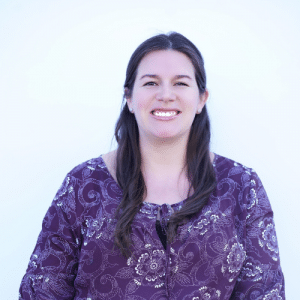Substance use disorder and addiction offset the dynamics of family life. This results in many conflicts, child abuse, financial instability, and health challenges. A report shows that about 100 million family members have been affected by relatives struggling with addiction. Relatives of persons living with a substance use disorder are also at risk of substance misuse. However, the family can also play critical roles in facilitating the recovery of a relative living with substance use disorder. But, the part of the family in recovering persons living with addiction is often under-utilized by caregivers.
Unhealthy Roles Relatives Assume in Addiction
When a loved one struggles with addiction, relatives assume unhealthy roles; some can be maladaptive and not beneficial to the family in the long run. Here are some of the typical roles:
The Savior or Hero: When a relative is struggling with addiction, one of the family relatives attempts to compensate for the dysfunction in the family. They try to cover the lapses of the person living with the addiction, and they may even be in denial. Their lack of acceptance can often be maladaptive for the individual’s recovery.
The Mascot: This describes the relative that uses humor to relieve the tension in the family. This is also a coping mechanism, usually maladaptive because the mascot tries to deflect the hurt and pain.
The Lost Child: This describes the family member that avoids conflicts and internally suppresses their emotions.
The Scapegoat: This person adopts the role of the blame-bearer; they also try to deflect the blame for their actions. They are usually helpful in reducing the attention given to the person living with the addiction. This role is also an abnormal coping mechanism.
The Enabler/Rescuer: This refers to the family member that cleans up the mess after the person living with the addiction. They try to shield the person living with the addiction from the consequences of their actions, which is often counterproductive for recovery.
Healthy Family Roles in Addiction Recovery
Relatives of persons living with addiction can be deliberate about avoiding unhealthy roles assumption as they are often maladaptive for recovery. Other healthy family roles in the recovery process of persons living with addiction can include the following:
Enabling Accountability: Relatives can encourage the recovery of persons living with addiction by helping them become accountable. Relatives offer support but can still be firm on them and not encourage addiction-sustaining patterns.
Finding Treatment Options: Another central family’s role in addiction recovery is to help their loved one seek help. Usually, a person living with addiction may be unwilling to seek help. Relatives can bridge this gap by taking the responsibility of seeking and exploring treatment options for their loved ones.
Ensuring Adherence: This is a significant part of the family’s role in addiction recovery. Relatives can encourage their loved ones to comply with medical instructions and follow through with their treatment. This is a crucial family role in recovery process, as many living with addiction often drop out of treatment.
Providing Relevant Information: Family roles in substance abuse also include the management and provision of the health information of their loved ones. This includes information such as past treatments, medications they’re using, and other medical histories that may be relevant for health providers. Generally, this is a significant family role in substance abuse management as relatives often possess adequate and the most appropriate medical information.
Support: The role of family members as the primary support system for persons struggling with addiction can not be overemphasized. Relatives can support their loved ones by being present in their treatment and support groups, openly expressing their pride in them seeking help, and preventing stigmatization.
Advocating: Persons struggling with addiction may be vulnerable at times in society. Roles of family members in addiction may include advocating for the rights and privileges of their loved ones. This may be very helpful in getting optimal care in addiction recovery and is a crucial family role in addiction recovery.
Crisis Intervention: The availability of relatives also places them in the position to help and give first aid or seek medical help in crises such as severe withdrawal episodes or adverse reactions from drug usage.
Family Centered-Care for Addiction Recovery
Family-centered care in addiction recovery involves including the family as a vital component of the intervention process in caring for a person with an addiction. Family involvement in care has been shown to increase treatment entry, treatment completion, and outcomes of addiction care. Family-centered care aims to improve the health status of individuals with addiction and the family unit’s health.
SOBA New Jersey provides addiction recovery services that include family programs designed to improve the recovery of individuals with addiction and assist families during the addiction recovery process. If you have a loved one struggling with addiction, contact us today to learn how we can help you and your family achieve optimal health individually and as a family.










